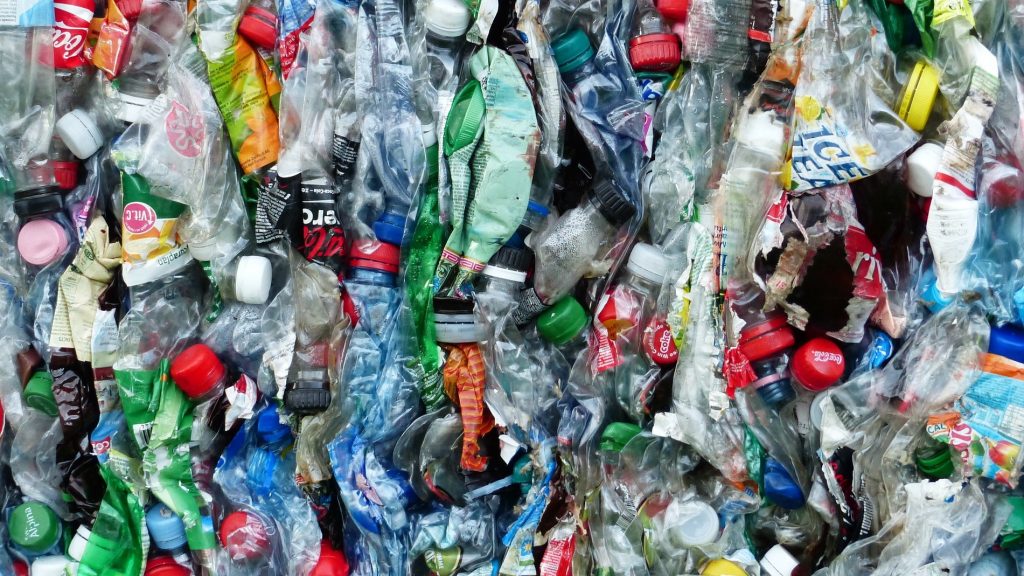Plastic bottle review more ‘time-wasting’ from Government

January 28th, 2019
The Government has been accused of “time-wasting” by the Greens as it launches a new review to examine how to tackle plastic bottle pollution and meet ambitious upcoming EU targets on plastic pollution.
This morning, the Minister for Climate Action and Environment Richard Bruton announced that our problem with the plastic bottle will be evaluated in a major review commissioned by his department.
The review, which does not appear to have a set deadline, will evaluate how to deliver a 90 per cent collection target for single-use plastic bottles as required under new EU single-use plastic legislation.
The review will also look at how a deposit and return scheme (DRS) might operate in Ireland as Mr Bruton looks for solutions to our plastic problem that he said is a “major contribution to the chronic problem of pollution, damaging our cities, countryside and oceans”.
Although we recycled 36 per cent of plastics in 2016 – well above the EU target of 22.5 per cent – we are still the top producer of plastic waste in Europe.
According to VOICE Ireland, we now generate around 3 billion single-use plastic bottles, over 582 million aluminium cans and 718 million glass bottles in Ireland every year.

Plastic Bottle Recycling Photo: Hans / Pixabay
Time-wasting
The launch of the review is not seen as the solution to the issue according to Green Party leader Eamon Ryan and is little more than “time wasting”. Mr Ryan said that it would be much simpler and quicker for the Government to support his party’s Waste Reduction Bill.
Launched in June 2017, the Green’s Bill outlines plans to tackle the plastic issue, calling for an outright ban on single-use non-recyclable plastics such as coffee cups and plastic cutlery by 2020.
The Bill, voted against by the Government last year, also seeks to introduce a deposit and return scheme for beverage containers such as cans and plastic bottles.
Similar schemes are a great success across Europe, Mr Ryan said, such as in Lithuania where 1.2 billion units of plastic beverage containers have been returned since the scheme launched in 2016.
He called on the Government to design a scheme based on these examples, adding that it is “disingenuous to suggest implementing these policies need a ‘major review’”.
“This is yet another example of Fine Gael working hard to sound like they care about the environment while doing absolutely nothing,” he said.
Delay tactics
While generally welcoming the review, the Environmental Pillar coalition said that it is concerned that the study is now only being commissioned and called for delivery of results to a tight deadline.
“Despite all the Ministerial virtue-signalling on plastic, we have seen precious little policy progressed,” said the Pillar’s Oisin Coghlan, who also coordinates the Sick of Plastic campaign.
“It took a lot of campaigning to get them to even commission this study. And in the meantime, they are using a parliamentary trick to block the [Green Party’s] Waste Reduction Bill.
“I worry that if it takes us this long to ponder the tried and tested technique of a deposit and return scheme for plastic bottles that we will lack the drive we need to re-engineer our entire transport, energy and food systems in less than 10 years to contain climate change,” Mr Coghlan said.

Plastic bottles being recycled Photo: VšĮ Užstato Sistemos Administratorius
Deposit Return Scheme
Mindy O’Brien, also of the Pillar, said that the review must examine the wider environmental and societal benefits of tackling our plastic bottle problem, rather than a narrow “euro and pence” analysis of setting up the DRS itself.
Ms O’Brien, who also coordinates the Sick of Plastic campaign, said that it is vital that the review also examines the costs incurred by councils for street bin collection, litter clean-ups and street cleanings.
“Costs must [also] include the uncounted hundreds of thousands of volunteer hours devoted to litter clean-ups from Tidy Town groups and beach cleans done weekly through Clean Coasts and Coastwatch,” she added.
The review, she said, must also examine the fact that bottle producers currently pay some of the lowest producer fees in the EU, with the burden of action all too often falling to the consumer. Ireland currently has one of the lowest producer fees in the EU with producers paying €89 per tonne for placing plastic packaging onto the market.
“It should not fall to the consumers to pay increased fees for their recycling bin and they should instead be incentivised to return their drinks containers and to reduce the number of single-use items they use,” Ms O’Brien said.
[x_author title=”About the Author”]







